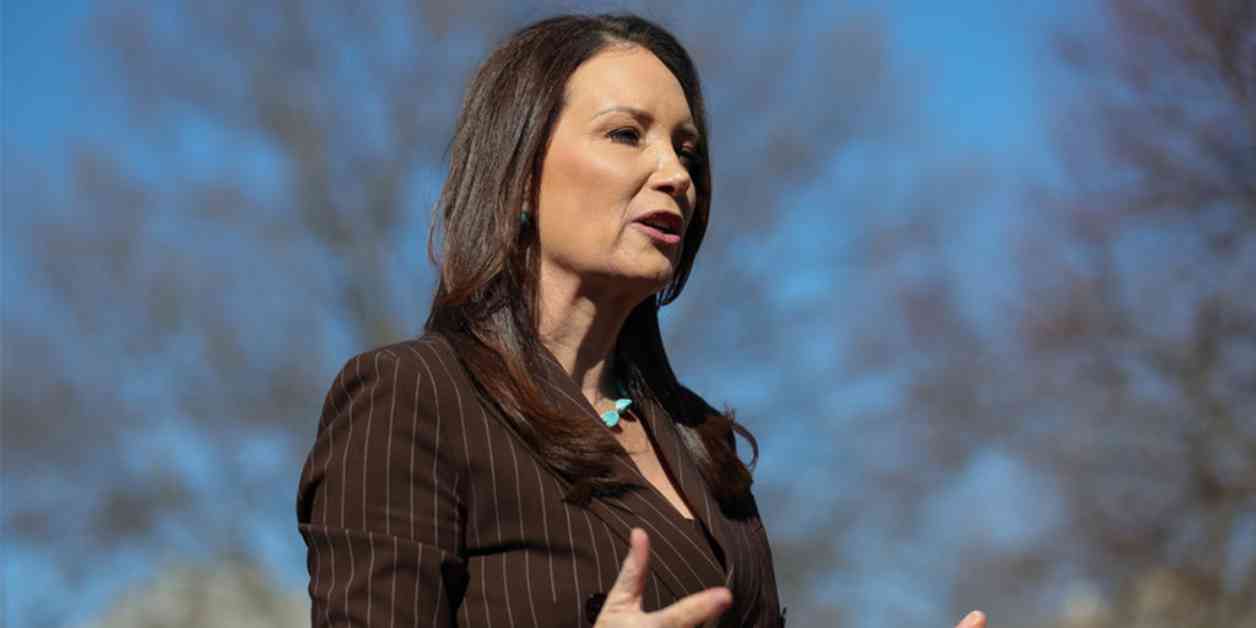Secretary of Agriculture Brooke Rollins made a groundbreaking announcement on Friday, revealing that the department has taken the bold step of terminating a substantial number of contracts. Among the terminated contracts were those for a Brazilian forest and gender consultant, as well as a Central American gender assessment consultant. These contracts, which were part of the 78 active contracts under the Biden administration, amounted to a staggering $132 million. But that’s not all – Rollins also revealed that more than 1,000 other contracts are currently under review for potential termination, signifying a significant shift in the department’s spending practices.
The impetus for these sweeping changes came after a comprehensive review conducted by the Department of Government Efficiency, led by none other than Elon Musk. Rollins emphasized that the insights gained from this review will play a crucial role in helping the Agriculture Department curb wasteful spending and streamline its operations. In her statement, Rollins expressed her gratitude for the Department of Government Efficiency’s efforts, highlighting the importance of their work in enhancing the department’s efficiency and effectiveness. She also underscored the need for full transparency and cooperation between the two entities in the days and weeks ahead.
The terminated contracts unveiled a range of expenditures that raised eyebrows and sparked discussions. These included $374,000 for a diversity, equity, and inclusion onboarding specialist, $254,000 for diversity dialogue workshops, $298,000 for international development for historically underrepresented communities, $229,000 for a Brazilian forest and gender consultant, $121,000 for a women and forest carbon initiative mentorship program, and $29,000 for a Central American gender assessment consultant. This move marked a significant departure from the previous focus on diversity, equity, and inclusion initiatives, as Rollins issued a memo rescinding all DEI programs in favor of fostering unity, equality, and meritocracy within the department.
Further changes were also implemented within the Agriculture Department, with the cancellation of 948 employee trainings, 758 of which were centered on DEI. The remaining trainings covered topics such as environmental justice and gender ideology, shedding light on the department’s shift in priorities. Additionally, a contract aimed at providing training, education, and access to professional and economic opportunities for women in African, Middle Eastern, Latin American, and Caribbean regions was terminated, totaling $91,000. Other noteworthy terminations included a neighborhood electric vehicle utility van worth $33,000 and a Hawaii conference room rental for a 100-person Agriculture Department meeting on biodiversity costing $11,000.
In a bid to further rationalize its expenditures, the Agriculture Department also slashed $277 million allocated for media contracts, which encompassed subscriptions to POLITICO Pro, a popular news and information service specializing in tracking legislation. Notably, the majority of subscribers to POLITICO Pro hailed from the private sector, indicating a significant shift in the department’s media engagement strategy. This move aligns with the broader government initiative to reduce spending, with the White House announcing the discontinuation of subscriptions to select news organizations for federal agencies and lawmakers, including those within the Agriculture Department.
Looking ahead, Rollins revealed that the Agriculture Department is actively working to optimize its workforce by eliminating redundant positions, requiring employees to return to the office, and relocating staff to various locations across the heartland of the nation. These strategic measures aim to enhance operational efficiency, reduce unnecessary expenditures, and refocus the department’s efforts on core priorities. As the department navigates these transformative changes, one thing remains clear – a new era of fiscal responsibility and operational excellence is on the horizon.
As Secretary Rollins and her team forge ahead with these ambitious reforms, the landscape of the Agriculture Department is set to undergo a significant transformation. By reevaluating contracts, streamlining operations, and aligning priorities with strategic objectives, the department is poised to emerge stronger, leaner, and more effective in its mission to serve the American people. The journey toward greater efficiency and transparency may be fraught with challenges, but it is through bold initiatives and decisive actions that lasting change is forged. In the words of Secretary Rollins, “We are embarking on a new chapter in the history of the Agriculture Department, one that is defined by accountability, innovation, and a relentless pursuit of excellence.”

